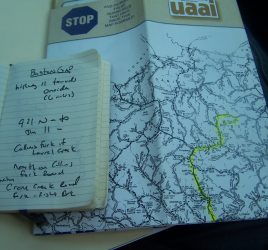On Feuds, Appalachia, and Reasoning
A few days ago, my former boss and friend posted on Facebook that he considered the National Rifle Association’s rhetoric around the Second Amendment to be primarily driven by race.
As you might imagine, this set off quite a debate on Facebook. I don’t want to recount the entire affair so let me summarize a few key points of background before we get started.
- In general, I agree that the language is couched with racial undertones, but I don’t agree that is the primary motivator.
- The discussion on Facebook was quite intellectual, and moderated well. Trolls there (as here) weren’t welcome.
My contribution to the discussion was this:
In the Appalachian region that I know, the northern one, racial biases certainly exist, but the primary motivations for gun ownership stem from a long-standing distrust of centralized authorities and government institutions that sought to control local politics. I argued that the language of the NRA is far more rooted in a distrust of any central organization that removes individual control from daily life than it is in the language of the rural white versus the urban black, which was the theme of the Facebook discussion.
As I read Feud: Hatfields, McCoys, and Social Change in Appalachia, 1860-1900, this morning, I found this theme repeating itself in the historical analysis:
From the Civil War to the early twentieth century, economic changes were transforming Appalachia from a region of self-sufficient and stable communities to one of dependency and poverty.
The mountaineers, argues McKinney, were confronted with the loss of control over their own economic and social environment. Unable to stop or even understand the process, they reacted with what outsiders perceived as “irrational violence.”
My argument regarding the language of the modern NRA draws upon this idea of the mountain folk who pushed against a central authority and the idea that most Northern Appalachians in Kentucky and West Virginia supported (and fought on) the side of the Union, which offered a better commercial relationship than the class-based South.
This doesn’t seek to discount race as a discussion in the country. That would be silly. But I think the modern language of guns, ownership, and control in this country is as much about class and centralized control as it is anything else.



